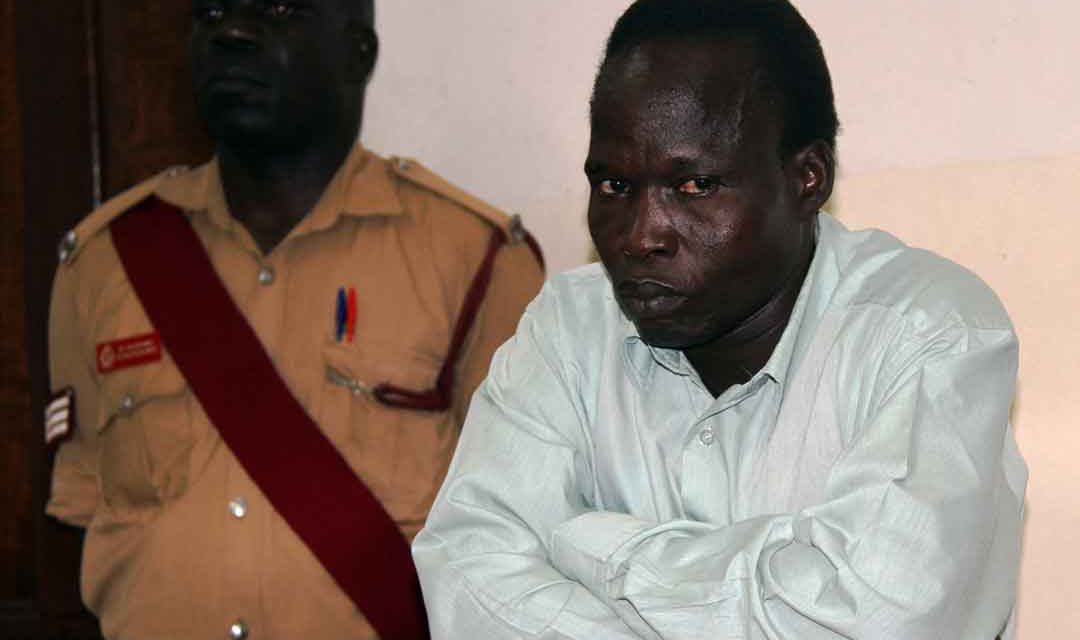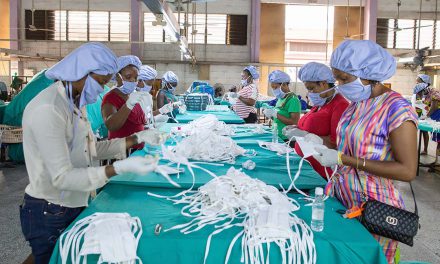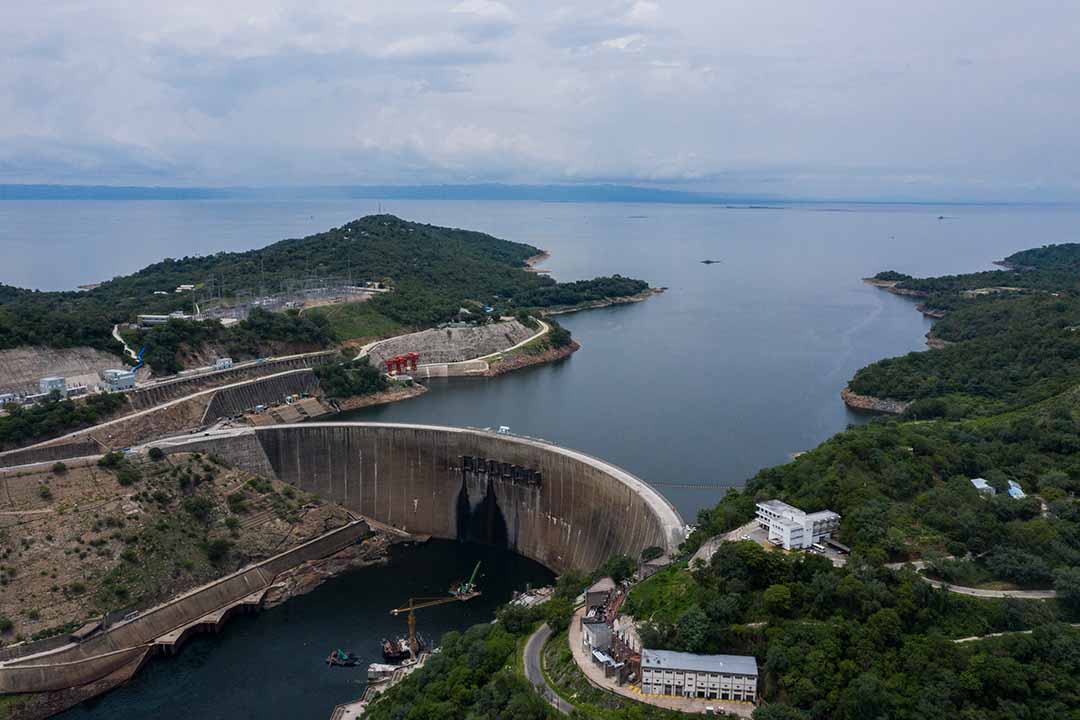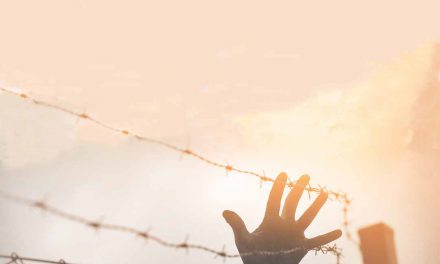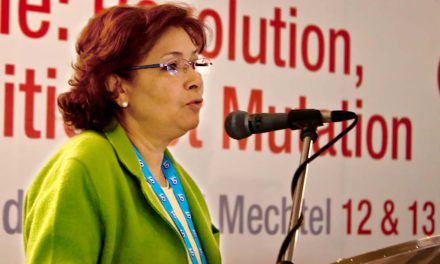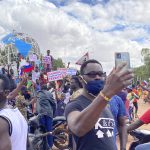Thomas Kwoyelo is the first person to face trial in Uganda for crimes he allegedly committed while fighting for the Lord’s Resistance Army (LRA), a nearly 30-year-old rebel group that now operates in the Central African Republic and the Democratic Republic of Congo (DRC). A Uganda Supreme Court ruling in April removed legal hurdles for Mr Kwoyelo’s criminal trial to resume, marking an important transition to using a special domestic court instead of relying on an amnesty law to deal with combatants of the rebel outfit led by Joseph Kony. Since the LRA began operating in northern Uganda in 1987, the group has killed more than 100,000 people, abducted more than 60,000 and displaced about 2.5m, according to the UN. A date for the resumption of the trial, suspended in 2011, has not been set. Uganda has adopted a reconciliatory approach towards LRA combatants, but commentators say applying it to serious crimes, such as murder, rape and kidnapping has fostered impunity.
The country’s Directorate of Public Prosecutions (DPP) says that the Kwoyelo trial will offer lessons to “the international community” on prosecuting internationally defined crimes at a national level. Thomas Kwoyelo was a colonel, a mid-level LRA commander. He ended up in the hands of the Ugandan army after a joint offensive by Uganda, the DRC and the Sudan People’s Liberation Army from southern Sudan (before it became independent South Sudan in 2011) in December 2008 on an LRA camp in the north-eastern DRC. Prosecutors charged him in 2010 for violating Uganda’s 1964 Geneva Conventions Act by committing murder, kidnapping and destroying property in northern Uganda. His trial began the following year. After four years of legal challenges, a Supreme Court ruling in April finally set the stage for the resumption of Mr Kwoyelo’s trial before the High Court’s International Crimes Division (ICD), a court established in May 2011 specifically to deal with genocide, crimes against humanity, war crimes, terrorism, human trafficking, piracy and other international crimes.
“Thomas Kwoyelo is a guinea pig for the Ugandan state and judiciary,” says one of his lawyers, Nicholas Opiyo. He argues that Mr Kwoyelo, like all other LRA combatants before him, is entitled to amnesty. Most LRA fighters were forced to join the LRA and attack their own communities. To lure them away from the rebel group, the government established the Amnesty Act in 2000. Since then, arrested or defecting LRA combatants who denounce rebellion can apply for amnesty. In the last 15 years, about 13,000 LRA combatants have received amnesty, according to Uganda’s Amnesty Commission. Mr Kwoyelo, who claims that the LRA abducted him when he was 13 years old, applied for it in 2010 while in detention. The Amnesty Commission was willing to honour his request but Uganda’s DPP, which formally has the right to determine eligibility, decided to bring criminal charges against him. The Supreme Court ruling is “one step in the right direction” because Mr Kwoyelo’s alleged victims demand retribution, says Sarah Kasande, with the non-profit International Centre for Transitional Justice (ICTJ) in Kampala, Uganda’s capital.
International law rejects providing amnesty for war crimes and crimes against humanity, according to a July 2011 Human Rights Watch (HWR) report. Ms Kasande lauds the Supreme Court for “harmonising” the Amnesty Act with Uganda’s international legal obligations. The court distinguished between crimes “in furtherance of the war” that could be forgiven under the Amnesty Act and crimes that Uganda’s Geneva Conventions Act stipulates must be prosecuted, such as murder and rape. “It is now clear that you cannot rape women and attack IDP camps and then say: ‘That is furthering a political cause,’” Ms Kasande says. “How do you link such horrendous acts to a political cause? That’s impunity.” Amnesty still has a role to play in Uganda, Ms Kasande says, “but not as a shield against every crime”. The Supreme Court clarified that the state can choose amnesty or prosecution, depending on the individual LRA combatant in question, she adds.
Mr Kwoyelo’s lawyer acknowledges that LRA combatants were never automatically entitled to amnesty and that the public prosecutor retains the right to initiate legal proceedings. But Mr Opiyo claims the prosecutor is targeting his client to test the new International Crimes Division.“Kwoyelo was captured at the wrong time,” Mr Opiyo says. “The court was baying for blood and he happened to be around.” This special court, funded by Western countries, was agreed upon during the 2006-08 peace talks between Uganda and the LRA. The LRA’s top leaders saw a dedicated Ugandan court as a way to circumvent the International Criminal Court (ICC) in The Hague, which issued arrest warrants for five LRA figures, including Joseph Kony and Dominic Ongwen, in 2005. The peace talks ultimately failed but Uganda pressed on with the new court. Mr Kwoyelo’s prosecution coincides with the conflict’s changing terrain. By the time Mr Kwoyelo was charged, the Ugandan army had already pushed the LRA into the DRC, the Central African Republic (CAR) and southern Sudan.
As of last year, an estimated 150 fighters were left roaming in the bush, according to LRA Crisis Tracker, an initiative of two American NGOs, The Resolve and Invisible Children. As the number of LRA combatants decreases and the group’s threat to Uganda subsides, the Ugandan government is increasingly emphasising the rule of law, Ms Kasande and Mr Opiyo say. But ironically, this comes at the expense of individuals’ rights, Mr Opiyo says. Ms Kasande warns that the Ugandan state must appear nonpartisan and also charge and prosecute state actors who allegedly committed crimes during the LRA conflict. Government officials have suggested that the country’s military courts will try cases involving crimes committed by Ugandan forces, according to the HRW report referred to earlier. The government’s previous claims that it has disciplined army soldiers “do not meet Uganda’s obligations under national or international law”, Ms Kasande says. Politics still prevails, sometimes, as in the case of Caesar Acellam, a senior LRA combatant who surrendered to the army in 2012.
After the public prosecutor brought charges against him and a Kampala court issued an arrest warrant, Mr Acellam seemed set to become the second LRA figure to face trial after Mr Kwoyelo. But the army refused to hand him over. To this day, Mr Acellam works as an informant in northern Uganda, Ms Kasande says. Mr Opiyo also accuses the state of “re-victimisation” and practising double standards by prosecuting Mr Kwoyelo for crimes he allegedly committed as an adult but failing to prevent Mr Kwoyelo’s kidnapping when he was 13. If the court accepts that Mr Kwoyelo was abducted as a child, his lawyer may ask the judges to use the kidnapping as a mitigating factor to reduce his sentence if he is convicted. Mr Ongwen, a former top LRA leader, is reported to have surrendered in CAR in January, and was arrested on an ICC warrant for crimes against humanity and war crimes. He is being held by the ICC in The Hague. A hearing to confirm his charges is scheduled for January 2016.
A formal legal relationship does not exist between the ICC and Uganda’s ICD, but prosecutors from both courts have cooperated and shared information from their respective investigations, according to the HRW report. Though Uganda’s new court could have requested the ICC to transfer Mr Ongwen’s case to Uganda, diplomatic sources, who requested anonymity, claim that Mr Ongwen may have qualified for amnesty, which the government would have found difficult to swallow. The Kwoyelo case may have a negative impact on abductees who are still held by the LRA, warns Stephen Oola, with the Refugee Law Project, a Ugandan human-rights group. Some may not attempt a risky escape from the bush out of fear that they will be prosecuted, he claims. At least 46 male Ugandan combatants defected or were captured since the initial start of Kwoyelo’s trial in 2011, according to LRA Crisis Tracker.
The irony is that the court was originally set up to prosecute LRA crimes, but it will probably hear very few cases related to this rebel group. Four of the five LRA leaders indicted by the ICC are either dead or captured, with only Mr Kony at large, Mr Oola says. “The ICD is a court for everything, with nothing,” Mr Oola adds, meaning that the court was created for the LRA but has almost no LRA fighters to prosecute.
Mark Schenkel is a freelance journalist based in Kampala, Uganda. He reports about East African affairs for Radio Netherlands Worldwide and for business newspapers in the Netherlands (Het Financieele Dagblad) and Belgium (De Tijd). He has also contributed to the Guardian and Uganda’s Daily Monitor.

